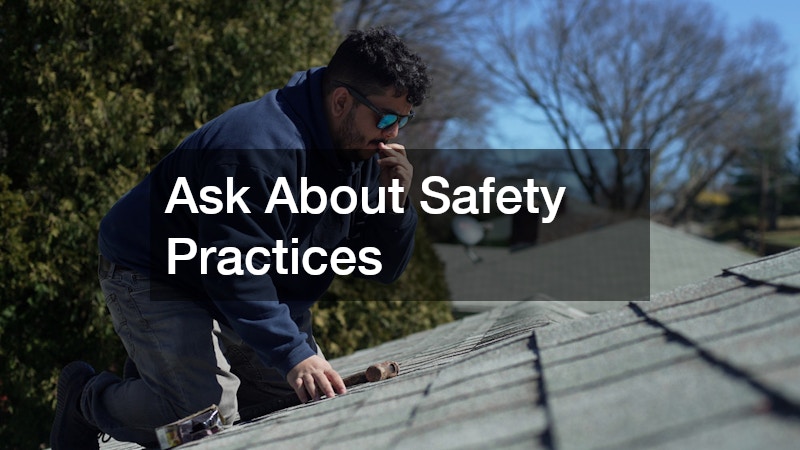Hiring a roofing contractor is a major decision for any homeowner. Whether you need a few repairs or a full roof replacement, the roofer you select will directly influence the durability, appearance, and overall protection your home receives. Because a roof is such a critical investment, it’s important to know what to look for before signing a contract. From verifying credentials to comparing estimates, the right preparation can help you avoid costly mistakes and give you confidence in your choice.
Research Local Contractors
The first step in finding the right roofer is to focus your search on local contractors. Local roofers are familiar with regional weather conditions, building codes, and common roofing challenges. They also rely on their reputation in the community, which often means they are more committed to quality service.
Hiring a local business also makes it easier to get follow-up service or warranty work if needed.
Before moving forward, take the time to read reviews, check ratings on trusted sites, and ask neighbors for recommendations. A roofer with strong community ties and positive customer feedback is generally a safer choice.
Verify Licensing and Insurance
Roofing work is risky, and you don’t want to be liable for accidents on your property. That’s why verifying a roofer’s license and insurance is crucial. A valid license confirms that the contractor meets the professional standards set by your state or municipality. Insurance, including both general liability and workers’ compensation, protects you from financial responsibility if a worker is injured or if property damage occurs.
Always request documentation and confirm coverage directly with the insurer. Contractors who hesitate to provide proof of insurance or licensing should not be considered.
Ask About Experience and Expertise
Not all roofers have the same level of expertise. Some may specialize in asphalt shingles, while others are more experienced with metal, tile, or flat roofing systems. Ask how long the roofer has been in business and whether they have worked on projects similar to yours.
Experienced roofers are better equipped to handle complications, such as steep roof pitches, hidden structural damage, or weather-related delays. They also tend to complete projects more efficiently and with higher-quality results.
Get Written Estimates
One of the most important steps before choosing a roofer is to obtain multiple written estimates. A detailed estimate should outline the cost of materials, labor, permits, and cleanup. It should also specify the type of roofing products being used and the projected timeline for completion.
Be wary of contractors who provide vague verbal quotes or estimates that seem significantly lower than others. A suspiciously cheap bid may mean the roofer plans to use low-quality materials or cut corners on labor. The best choice is often a contractor who offers fair, transparent pricing.
Look for Warranties
A reliable roofer stands behind their work. Ask about warranties on both materials and workmanship. Manufacturer warranties cover the roofing products themselves, while contractor warranties protect against installation errors.
Clear warranty terms give you peace of mind that if something goes wrong, you won’t be left with unexpected expenses. Make sure to review the details in writing and ask how warranty claims are handled.
Pay Attention to Communication
A roofer’s communication style can tell you a lot about how they will handle your project. Do they return your calls promptly? Are they willing to explain options and answer your questions in detail? Professional roofers will take the time to keep you informed, provide updates, and address concerns along the way.
Good communication helps prevent misunderstandings and ensures that the final results meet your expectations. If a roofer is difficult to reach before you hire them, it may be a sign of problems later.
Review Past Work
Before making your decision, ask to see examples of the roofer’s previous projects. Many contractors keep a portfolio of completed work, either online or in print. You can also ask for addresses of past jobs so you can drive by and see the finished product for yourself.
In addition, speaking with past clients can give you valuable insight into the roofer’s reliability, timeliness, and overall professionalism.
Ask About Safety Practices
Roofing is one of the most hazardous construction jobs, and a contractor’s commitment to safety is critical. Ask what safety measures are in place for workers on your property. Reputable roofers follow Occupational Safety and Health Administration (OSHA) guidelines, provide safety training for employees, and use proper protective equipment.

